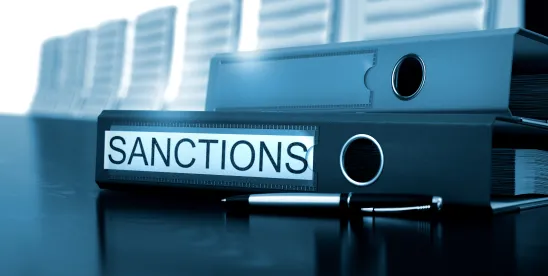On June 24, 2024, the European Union adopted its 14th sanctions package (implemented by EU Regulations 2024/1745 and 2024/1739). While the focus of this package was to curb the violation and circumvention of sanctions through the introduction of due diligence obligations for non-EU subsidiaries, or the expansion of “no re-export to Russia” clause requirement, ample other amendments were also introduced, such as those relating to transfer of IP rights, or divestment. The list of restricted goods has also been significantly expanded and additional persons and entities have been added to the list of sanctioned persons in EU Regulation 269/2014.
On June 29, 2024, the EU also fundamentally expanded its sanctions against Belarus (implemented by EU Regulation 2024/1865) in order to align with the goals of the 14th sanctions package. Additional sanctions under the Hamas and Palestinian Islamic Jihad and Sudan regimes were also published.
In this Quarterly Sanctions Update, we summarise the most recent and significant amendments introduced, or proposed, by the EU and the United Kingdom between April and July 2024.*
IN DEPTH
Due Diligence, Circumvention & Enforcement
- Liability for the actions of subsidiaries: New Article 8a of EU Regulation 833/2014 imposed a ‘best efforts’ obligation on EU companies which are now required to ensure that their non-EU subsidiaries do not participate in activities undermining EU sanctions. As explained by Recital 29 to EU Regulation 2024/1745 such activities are “those resulting in an effect that EU sanctions seek to prevent, for example, that a recipient in Russia obtains goods, technology, financing or services of a type that is subject to prohibitions under EU Regulation 833/2014”. EU sanctions against Belarus now contain the equivalent provision.
- “No re-export to Russia” and “no re-export to Belarus clauses: Two exemptions from the “no re-export to Russia clause” obligation of Article 12g of EU Regulation 833/2014 have been introduced. Those relate to: (i) contracts relating to machining centres, horizontal lathes and other related goods and (ii) public contracts concluded with a public authority in a third country or with an international organisation. In addition, the new Article 12ga of EU Regulation 833/2014 included within the scope of the “no re-export to Russia” clause a requirement for the transfer of intellectual property in connection with common high priority items. Finally, EU exporters of common high priority items are now required to (i) implement sanctions due diligence and compliance policies, and (ii) ensure that such policies are implemented by their non-EU subsidiaries. This requirement will apply as of December 26, 2024. An equivalent “no re-export to Belarus” clause requirement has been introduced to EU sanctions against Belarus. Note that this requirement does not, however, extend to intellectual property relating to the common high priority items.
- Definition of circumvention: The existing anti-circumvention provision of Article 12 of EU Regulation 833/2014 has been amended to specifically prohibit participation in arrangements aimed at circumventing EU sanctions, without deliberately seeking such circumvention but being aware of it and accepting the possibility. Recital 37 to EU Regulation 2024/1745 further explains that the amendment reflects the interpretation of ‘circumvention’ provided by the Court of Justice of the European Union in Case C-72/11. EU sanctions against Belarus now contain the same prohibition.
- Voluntary self-disclosure: The 14th package amended Article 8 of EU Regulation 833/2014 relating to penalties for sanctions violation to expressly provide that voluntary self-disclosure may be taken into account as a mitigating factor. Recital 26 to EU Regulation 2024/1745 clarified in this respect that: “Where a natural or legal person voluntarily, completely and in due time discloses a violation of the restrictive measures, it should be possible for national competent authorities to take that self-disclosure into account when applying penalties, as appropriate, in accordance with national administrative law or with other relevant national law or rules.” In addition, the 14th package imposed a new requirement on EU Member States and the European Commission to share information on sanctions violations and enforcement issues, penalties for breach and judgments handed down by national courts. Click here to access our alert on sanctions violation criminalisation at the EU level. EU sanctions against Belarus have been amended accordingly.
- List of entities involved in circumvention: 28 Russian and 31 third-country entities were added to the list of entities associated with Russia’s military-industrial complex of Annex IV to EU Regulation 833/2014 (which are subject to authorisation requirements with limited grounds). This list now contains 649 entities incorporated in, among other countries, Russia, China, Türkiye, Thailand, Kazakhstan, India or Singapore.
- United Kingdom: On May 16, 2024, the UK Office of Financial Sanctions Implementation issued its Guidance on financial sanctions enforcement and monetary penalties. The guidance sets out, among other things, (i) a summary of the UK Office of Financial Sanctions Implementation compliance and enforcement approach, (ii) an overview of how it will assess whether to apply a monetary penalty, and what will be taken into account, (iii) an overview of the process that will decide the amount of the monetary penalty and (iv) an explanation of how it will impose a monetary penalty, including timescales at each stage and rights of review and appeal.
Business Services & Software
- “Partner countries” subsidiaries’ exemption: The existing exemption for the provision of business services and software for the exclusive use of Russian subsidiaries that are owned or controlled by an entity established in the EU or ‘partner countries’ (including the UK, US, Australia, Canada, Japan, New Zealand, Norway, Switzerland and South Korea) has been extended until September 30, 2024. The list of ‘partner countries’ has been additionally expanded to include Iceland and Lichtenstein. Further, under a new exemption, EU nationals currently residing Russia, and were in residence before February 24, 2022 are allowed to provide business services to their Russian employers if these employers are owned or controlled by an entity established in the EU or partner countries.
- Belarus: EU sanctions against Belarus prohibits provision of certain business services and software to (i) the Republic of Belarus, its Government, public bodies, corporations or agencies or (ii) any natural or legal person, entity or body acting on their behalf or their direction. This prohibition is narrower in scope as compared to EU sanctions against Russia as it does not apply to Belarussian entities that are not controlled by the Belarussian State. Two exemptions have been provided, relating to (i) the provision of services that are strictly necessary for the termination by October 2, 2024 of contracts concluded before July 1, 2024 and (ii) the provision of services intended for the exclusive use of Belarussian subsidiaries of EU, UK, US or “partner countries” entities (applicable until January 2, 2025).
Divestment
- Divestment licences: Powers of national authorities to authorise a number of activities prohibited under EU sanctions in relation to divestment from Russia or the wind-down of business activities in Russia have been extended until December 31, 2024. In addition, national authorities have been granted the power to authorise the satisfaction of a claim made by a Russian entity that would otherwise be affected by EU sanctions, to the extent such satisfaction is strictly necessary for the divestment from Russia or the wind-down of business activities in Russia.
- Damages for expropriation: EU companies have been granted powers to recover, in judicial proceedings before the competent courts of EU Member States, any damages, including legal costs, caused by Russian entities that benefited from the expropriation of EU companies in Russia. Further, Member States shall not be liable for judicial decisions rendered in accordance with [the Russian Expropriation Decree] or for the enforcement of such decisions. Member States shall not comply with judgments, arbitral awards, including investor-State arbitral awards, or other judicial decisions which hold them liable”.
Energy
- New restrictions on Russian LNG: For the first time, the EU has introduced prohibitions on the provision of goods, technologies and services to LNG projects under construction in Russia. In addition, the transshipment of LNG via EU ports and related technical services will be gradually phased-out over the next 9 months. The import of Russian LNG into terminals which are not connected to the EU gas pipeline network has also been prohibited.
Exports & Imports
- Advanced technology and industrial goods: The 14th Sanctions Package extended export restrictions to include quadbikes, microwaves and aerial amplifiers, and digital flight data recorders, as well as certain chemicals, plastics, vehicle parts (including replacement parts for trucks) and machinery (e.g. boring/excavating machinery, appliances for pipes, electrical equipment, monitors, radios, video/audio equipment). EU sanctions against Belarus have been updated accordingly to include the advanced technology, industrial and common high priority items included in EU Regulation 833/2014.
- Helium: The 14th sanctions package introduced a new prohibition on the import into the EU of helium originating in Russia or exported from Russia. This prohibition also covers any transfer of helium and the provision of technical assistance and financing in relation to any such import or transfer.
Financial Sector
- Russian SPFS Financial Messaging System: From June 25, 2024, EU banks outside Russia are prohibited from connecting into, and carrying out transactions using, the SPFS (equivalent to SWIFT). In addition, EU operators to engage with third-country banks listed in EU Regulation 833/2014 that are using SPFS.
- Transactions with banks and crypto asset providers: Any transactions with banks and asset providers established in Russia and third countries listed in EU Regulation 833/2014, which facilitate transactions supporting Russia’s defence-industrial base are now prohibited.
Transport
- Aviation: Subject to a number of exemptions, non-scheduled flights (the origin or destination of which is decided by a Russian individual or company, regardless of the aircraft’s ownership) have been prohibited.
- Road transport: The existing prohibition relating to transport of goods by road in the EU has been expanded to also cover EU companies with an ownership share of 25% or more by Russian companies or individuals. In addition, companies with an ownership of 25% or more by such persons will no longer be allowed to become ‘EU road transport undertakings’ within the meaning of the relevant EU legislation.
- Maritime: For the first time, the EU has sanctioned 27 vessels for their contribution to Russian warfare in various sectors (e.g. the transport of military equipment for Russia, the transport of stolen Ukrainian grain, or the participation in the dark fleet transporting Russian oil). These vessels are now prohibited from accessing EU ports and related services.
Asset Freeze
- Persons and entities subject to asset freeze: A further 69 individuals and 47 entities were added to the list of persons subject to asset freeze restrictions. The listings touch upon various sectors of the Russian economy, including military companies, companies active in the engineering, chemical or explosives sectors, the leading Russian energy companies as well as companies involved in disinformation activities. In the same vein, the UK introduced 50 new designations targeting Russian shadow fleet, Russian financial institutions as well as companies which supply Russia’s military production.
Other Sanctions Regimes
- Hamas and Palestinian Islamic Jihad sanctions: On June 28, 2024, 6 individuals and 3 entities were added to the list of sanctioned persons under EU Regulation 2024/385 for participating in the financing of Hamas and Palestinian Islamic Jihad. The UK imposed similar sanctions on January 22, 2024 and March 27, 2024.
- Sudan sanctions: On June 28, 2024, 6 individuals were added to the list of sanctioned political persons under EU Regulation 2023/2147 for participating in activities undermining the stability and transition of Sudan. The UK updated its Sudan (Sanctions) (EU Exit) Regulations 2020 with 3 entities on April 15, 2024.
*Trainees David Amar and Marine Bahaderian also contributed to this update.






 />i
/>i

